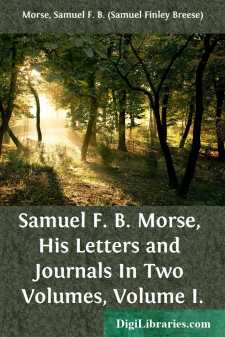Categories
- Antiques & Collectibles 13
- Architecture 36
- Art 48
- Bibles 22
- Biography & Autobiography 813
- Body, Mind & Spirit 142
- Business & Economics 28
- Children's Books 13
- Children's Fiction 10
- Computers 4
- Cooking 94
- Crafts & Hobbies 4
- Drama 346
- Education 46
- Family & Relationships 57
- Fiction 11828
- Games 19
- Gardening 17
- Health & Fitness 34
- History 1377
- House & Home 1
- Humor 147
- Juvenile Fiction 1873
- Juvenile Nonfiction 202
- Language Arts & Disciplines 88
- Law 16
- Literary Collections 686
- Literary Criticism 179
- Mathematics 13
- Medical 41
- Music 40
- Nature 179
- Non-Classifiable 1768
- Performing Arts 7
- Periodicals 1453
- Philosophy 64
- Photography 2
- Poetry 896
- Political Science 203
- Psychology 42
- Reference 154
- Religion 513
- Science 126
- Self-Help 84
- Social Science 81
- Sports & Recreation 34
- Study Aids 3
- Technology & Engineering 59
- Transportation 23
- Travel 463
- True Crime 29
Sort by:
I I once heard him (2) discuss the topic of economy (3) after the following manner. Addressing Critobulus, (4) he said: Tell me, Critobulus, is "economy," like the words "medicine," "carpentry," "building," "smithying," "metal-working," and so forth, the name of a particular kind of knowledge or science? (1) By "economist" we now generally...
more...
CHAPTER I APRIL 27. 1791—SEPTEMBER 8, 1810 Birth of S.F.B. Morse.—His parents.—Letters of Dr. Belknap and Rev. Mr. Wells.—Phillips, Andover.—First letter.—Letter from his father.— Religious letter from Morse to his brothers.—Letters from the mother to her sons.—Morse enters Yale.—His journey there.—Difficulty in keeping up with his class.—Letter of warning from his...
more...
by:
Tyrone Power
NAHANT. This rocky peninsula is truly a very wild and unworldlike little territory, jutting boldly out as it does into the mighty bay of Massachusetts, and commanding a view of its whole extent, from Cape Cod to Cape Anne, together with the many islands, towns, and villages scattered along the coast; whilst in front spreads out the Atlantic Ocean. To sit within the upper gallery of this house upon the...
more...
by:
Maria Edgeworth
THE BRACELETS. In a beautiful and retired part of England lived Mrs. Villars, a lady whose accurate understanding, benevolent heart, and steady temper, peculiarly fitted her for the most difficult, as well as most important of all occupations—the education of youth. This task she had undertaken; and twenty young persons were put under her care, with the perfect confidence of their parents. No young...
more...
by:
Hiram Bingham
Chapter I Crossing the Desert A kind friend in Bolivia once placed in my hands a copy of a most interesting book by the late E. George Squier, entitled “Peru. Travel and Exploration in the Land of the Incas.” In that volume is a marvelous picture of the Apurimac Valley. In the foreground is a delicate suspension bridge which commences at a tunnel in the face of a precipitous cliff and hangs in...
more...
PREFACE. 'The last fruit off an old tree!' This, in the words of Walter Savage Landor, is what I have now the honour to set before the public in these hitherto 'Uncollected Writings of Thomas De Quincey.' It was my privilege to be associated intimately with the Author some thirty to forty years ago—from the beginning of 1850 until his death in 1859. Throughout the whole period...
more...
by:
William McFee
She was one of those girls who have become much more common of late years among the upper-middle classes, the comfortably fixed classes, than they have ever been since the aristocracy left off marrying Italian prime-donne. You know the type of English beauty, so often insisted on, say, twenty years ago—placid, fair, gentle, blue-eyed, fining into distinction in Lady Clara Vere de Vere? Always she was...
more...
by:
Samuel Holt Monk
INTRODUCTION. The Rowe-Tonson edition of Shakespeare's plays (1709) is an important event in the history of both Shakespeare studies and English literary criticism. Though based substantially on the Fourth Folio (1685), it is the first, "edited" edition: Rowe modernized spelling and punctuation and quietly made a number of sensible emendations. It is the first edition to include dramatis...
more...
One The red sun rose slowly, achingly across the high Scottish moor, touching with melancholy gold the patching hoar frost and purple heath. For this was a land of pain, and stark beauty, and restless dream. Here the spirits of the dead walked by night through grim castles of shadow and dust, their glory long past. Here the spirits of the living grieved by day for a proud and chivalrous time forever...
more...
Mr. Speaker, Mr. President, my colleagues in the Congress, our distinguished guests and my fellow Americans: To address a joint session of the Congress in this great Chamber in which I was once privileged to serve is an honor for which I am deeply grateful. The State of the Union Address is traditionally an occasion for a lengthy and detailed account by the President of what he has accomplished in the...
more...











